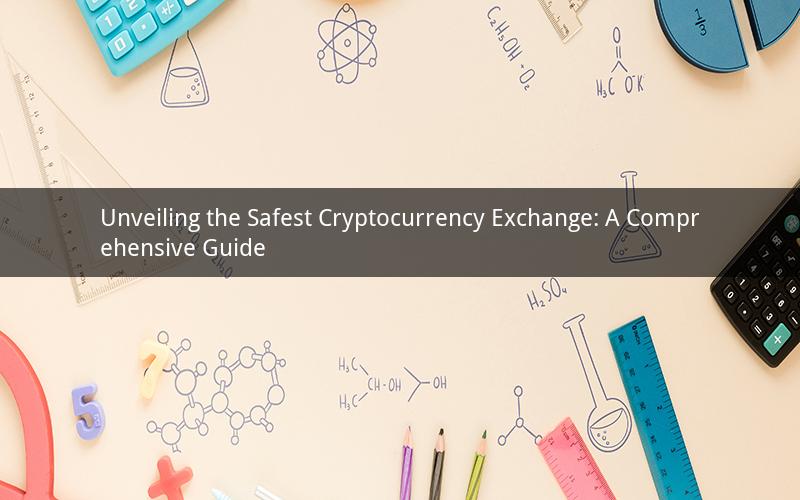
In the rapidly evolving world of cryptocurrency, the safety of your digital assets is paramount. With numerous exchanges vying for your attention, it can be challenging to determine which platform is the safest for your cryptocurrency transactions. This article delves into the factors that make an exchange secure, highlights some of the most reputable exchanges, and provides you with essential questions to ask when evaluating the safety of a cryptocurrency exchange.
I. Understanding the Importance of Security in Cryptocurrency Exchanges
1. The Role of Security in Cryptocurrency Exchanges
Security is a critical aspect of cryptocurrency exchanges. As the primary gateway for buying, selling, and trading digital assets, exchanges must ensure the safety of users' funds and personal information. A secure exchange minimizes the risk of theft, hacking, and fraud, giving users peace of mind.
2. Common Security Threats in Cryptocurrency Exchanges
a. Phishing attacks: Cybercriminals often use phishing techniques to steal users' login credentials and private keys.
b. Hacking: Malicious actors may attempt to breach an exchange's security systems to gain access to users' funds.
c. Insider threats: Employees with unauthorized access to sensitive information may misuse their privileges.
d. Technical failures: System malfunctions can lead to service disruptions, data breaches, and financial losses.
II. Factors to Consider When Evaluating Exchange Safety
1. Reputation and Track Record
An exchange's reputation and track record are crucial indicators of its safety. Research the exchange's history, including any past security breaches or incidents. Look for reviews and testimonials from other users to gauge their satisfaction with the platform's security measures.
2. Security Measures
a. Two-factor authentication (2FA): This adds an extra layer of security by requiring users to provide a second form of verification, such as a unique code sent to their phone.
b. Cold storage: Storing a significant portion of the exchange's assets in offline wallets (cold storage) reduces the risk of online theft.
c. Insurance: Some exchanges offer insurance policies to cover users' funds in the event of a security breach.
d. Regular security audits: Regular audits by reputable third-party firms can help identify and address potential vulnerabilities.
3. Regulatory Compliance
Regulatory compliance ensures that an exchange adheres to legal and industry standards. This includes following know-your-customer (KYC) and anti-money laundering (AML) regulations, which help prevent financial crimes and protect users' funds.
4. User-Friendly Interface
A user-friendly interface can enhance the overall experience of using a cryptocurrency exchange. It should be easy to navigate, with clear instructions and support options available to users.
III. Top Safest Cryptocurrency Exchanges
1. Coinbase
Coinbase is one of the most reputable and secure cryptocurrency exchanges, with a strong track record in protecting users' assets. It offers 2FA, cold storage, and insurance for its users' funds. Additionally, Coinbase is regulated and compliant with various financial regulations.
2. Binance
Binance is a popular exchange known for its advanced trading features and large selection of cryptocurrencies. It employs a multi-tiered security model, including 2FA, cold storage, and regular security audits. Binance also offers insurance for user funds and is regulated in several jurisdictions.
3. Kraken
Kraken is a well-established exchange with a strong focus on security. It offers 2FA, cold storage, and insurance for user funds. Kraken is also regulated and compliant with financial regulations, providing users with a high level of trust.
4. Gemini
Gemini is a regulated cryptocurrency exchange owned by the Winklevoss twins, known for their venture capital firm. The platform offers 2FA, cold storage, and insurance for user funds. Gemini is also compliant with financial regulations and boasts a user-friendly interface.
5. LedgerX
LedgerX is a regulated cryptocurrency exchange focused on institutional traders. It offers advanced trading features, 2FA, cold storage, and insurance for user funds. LedgerX is also compliant with financial regulations and is known for its robust security measures.
IV. Questions to Ask When Evaluating Exchange Safety
1. What security measures does the exchange employ to protect users' funds?
2. How does the exchange handle and store user funds?
3. Is the exchange regulated and compliant with financial regulations?
4. What is the exchange's reputation and track record in terms of security?
5. Does the exchange offer insurance for user funds in the event of a security breach?
Conclusion
Choosing the safest cryptocurrency exchange is essential for protecting your digital assets. By considering factors such as reputation, security measures, regulatory compliance, and user experience, you can make an informed decision. Remember to ask critical questions when evaluating exchange safety to ensure your funds are secure.